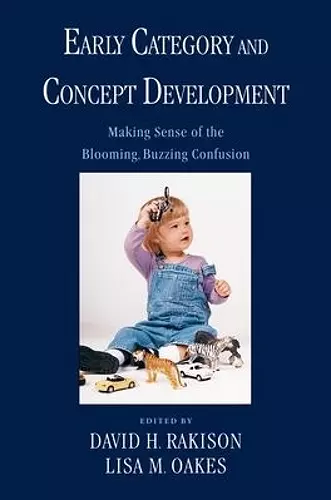Early Category and Concept Development
Making Sense of the Blooming, Buzzing Confusion
Format:Paperback
Publisher:Oxford University Press Inc
Published:16th Apr '09
Currently unavailable, and unfortunately no date known when it will be back

Whether or not infants' earliest perception of the world is a "blooming, buzzing confusion", it is not long before they come to perceive structure and order among the objects and events around them. At the core of this process, and cognitive development in general, is the ability to categorize - to group events, objects or properties together - and to form mental representations, or concepts, that encapsulate the commonalties and structure of these categories. Categorization is the primary means of coding experience, underlying not only perceptual and reasoning processes, but also inductive inference and language. The aim of this book is to bring together the most recent findings and theories about the origins and early development of categorization and conceptual abilities. Despite recent advances in our understanding of this area, a number of hotly debated issues remain at the centre of the controversy over categorization. Researchers continue to ask questions such as: Which mechanisms for categorization are available at birth and which emerge later? What are the relative roles of perceptual similarity and non-observable properties in early classification? What is the role of contextual variation on categorization by infants and children? Do different experimental procedures tap the same kind of knowledge? Can computational models simulate infant and child categorization, and how do these models inform behavioural research? What is the impact of language on category development? How does language partition the world? This book is the first to address these and other key questions within a single volume. The authors present a diverse set of views representing cutting-edge empirical and theoretical advances in the field.
This clearly written and well-edited book adds to the chorus of opinion that might inform answers to those questions plaguing the study of reality and its construction. This book is a must-read for those who study human categorization and conceptualization. It offers an up-to-date and well-argued compendium of opinion and research from the finest minds in developmental psychology, and illuminates the current status of the empiricist-rationalist debate within psychology."-Shannon M. Pruden, Kathy Hirsh-Pasek, & Julia Parish, Philosophical Psychology
ISBN: 9780195142945
Dimensions: 155mm x 231mm x 23mm
Weight: 655g
464 pages